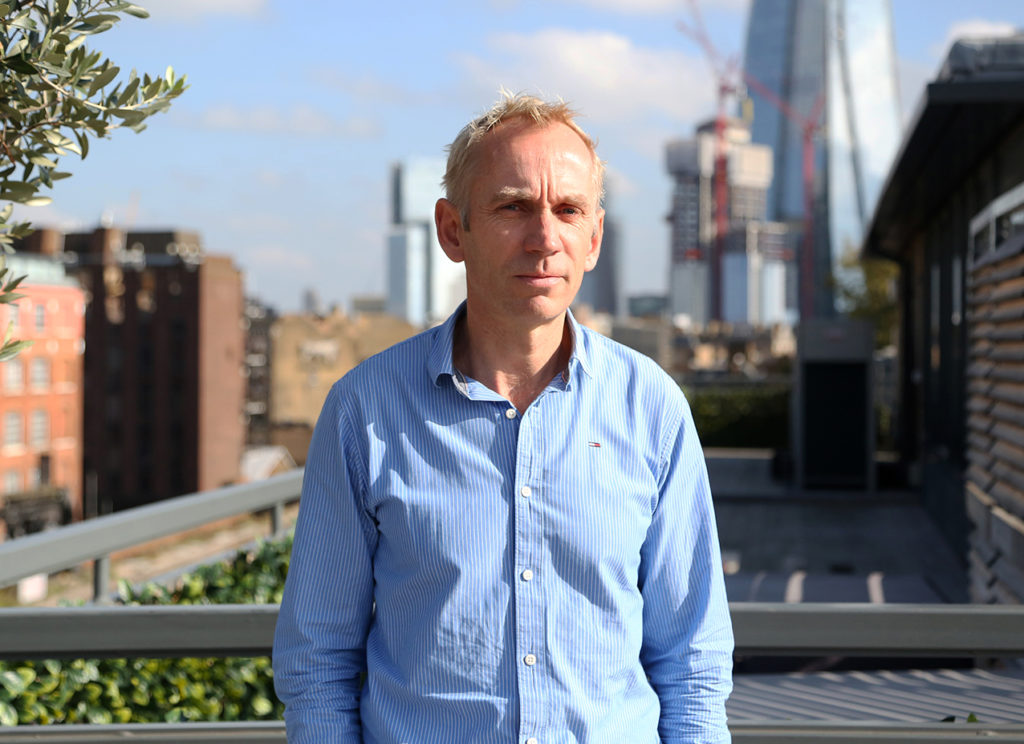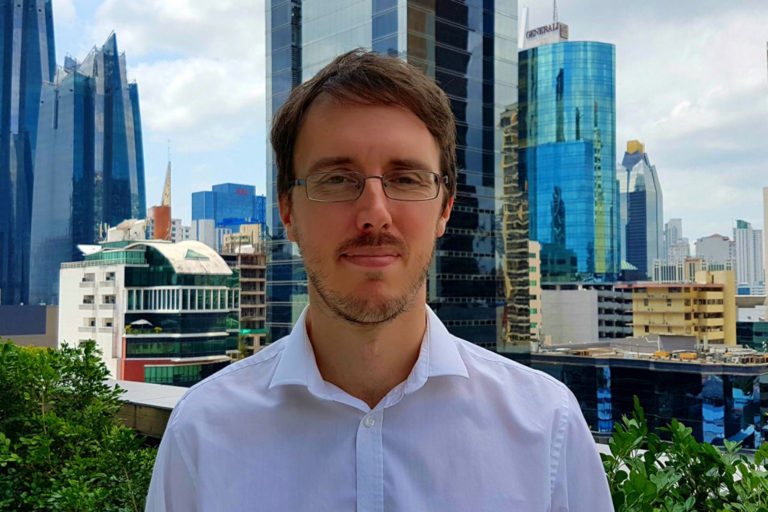Day in the life: Stephane Poulain – Business Development Manager

Stephane’s energy experience spans over two decades, but witnessing the changing landscape due to climate chaos drove him to focus his efforts on building up the French solar market.
How long have you been working in solar?
I’ve worked in the world of electrical energy for more than 20 years, including almost 12 years in solar.
I’ve held various positions from designing inverters in the R&D department of a large international company, to creating and managing my own solar company, to developing and building solar power plants of all types.
Why did you choose to work in this industry?
The creation of my own company has always been one of my wishes, but I wanted it to make sense, for the company to serve a purpose.
Developing solar PV projects was a matter of course. I live in the Alps and have been passionate about mountain sports and particularly hiking and skiing since I was very young. I’ve been able to see a real change in the mountain landscape from year to year – in particular the melting of glaciers, less and less frequent snowy episodes which come later and later, and a melting of the permafrost making some routes dangerous.
So, in 2008 I launched my company to participate in the most difficult challenge facing humanity
How has the solar industry changed in the last 12 years?
The French market has undergone a real revolution over the past two decades. Before 2006, PV was niche. Only small PV installations were built on homes that couldn’t be connected to the grid, such as high in the mountains. Then in 2006, the government introduced an energy feed-in tariff to launch a real market. From 2006 to 2010, the French PV market boomed.
I entered a market that was kicking off, industrialists offered all kinds of innovative technical solutions, commercial offers flourished everywhere, there was good and not so good, it was as exciting as it was frightening.
In 2010, the government put an end to this enthusiasm with a 6-month freeze. It was from this period that the sector really became professional and structured. The price of PV equipment steadily decreased, allowing the development and construction of power plants at prices per kWh that are close to the spot market price, and solar to become one of the cheapest generators of electricity on the market.
Why did you join Solarcentury?
Solarcentury was created to fight climate chaos through the deployment of solar energy. The company has been fighting this for over 20 years. This state of mind is found among all employees, which provides a caring and healthy working atmosphere.
For all these reasons, I wanted to join Solarcentury with whom I share the same convictions and the same desires.
What is your current role?
My role is to develop ground-based solar projects in the French market. My mission is to identify and qualify land suitable for solar projects, obtain all administrative authorisations – particularly for construction, respond to calls for tenders allowing the sale of the kWh produced, and search for financing. I work with partners who are experts in their field, enabling us to meet the many challenges we face every day.
I have the opportunity to do an exciting job with a rich diversity. Every day is different, work with technical as well as legal, financial, administrative, commercial and so on…
What are the upcoming challenges for the French market?
The French government has developed an ambitious Multi-Year Energy Programming project increasing the share from the current 9.1GW to 35.6 to 44.5GW in 2028. Calls for tenders will be launched at the beginning of 2020 with 900MW per year dedicated to large roofs and 2GW per year for ground-based power plants.
This program offers good prospects and gives good visibility for the market. Our challenge will be to supply our portfolio with new projects that meet the criteria for tenders, building permits, and price.
That’s where it gets tough! It is a long journey, full of obstacles. Urban planning documents that require a lengthy process with the authorities often need to be reviewed, environmental issues need to be taken into account and adapted accordingly. It is a minimum of 2 or even 3 years of work before being able to present the projects in tenders. A real marathon that requires adaptation, persuasiveness, patience and perseverance.
It sounds like you enjoy the outdoors. Do you still have time to enjoy it?
When I am not on the move, I work from home, which is a real comfort. I am more efficient because I avoid the stress and fatigue of transport. I’m not disturbed by the noise of office life. I can drop my children off at school some mornings or pick them up some evenings on my bike.
After a tiring day, I put on my trainers and go running right after closing my computer. At weekends, my family or friends and I escape to the mountains to practice the activities that the mountain offers us each season: hiking, skiing, via-ferrata, climbing, water sports on the Lac du Bourget…

Even if the Monday morning discussions around the coffee machine may be missing, I have found my balance thanks to -remote working.
Final question – what would you say is the future of solar?
Solar energy will be the main source of energy production in the 21st century, I am convinced. It is simple to design, simple to install, simple to operate and the production cost per solar kWh will soon be much lower than any other energy source and all this possible thanks to the sun!
But we must not fall asleep on the achievements we’ve made so far, and show more boldness, innovation and persuasion to quickly stop fossil energy consumption thanks to solar energy.
We won’t give up, the fight continues.
Read more from our day in the life series here.
If you’re interested in joining our team at Solarcentury, view our vacancies here.


